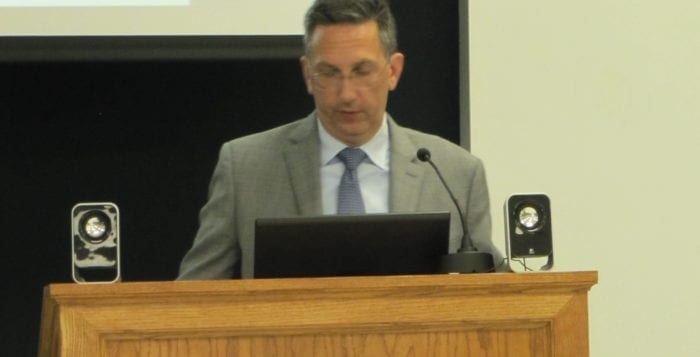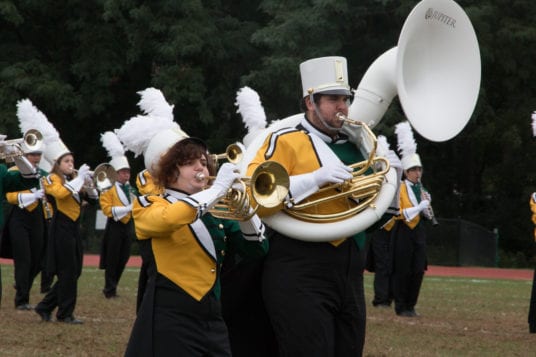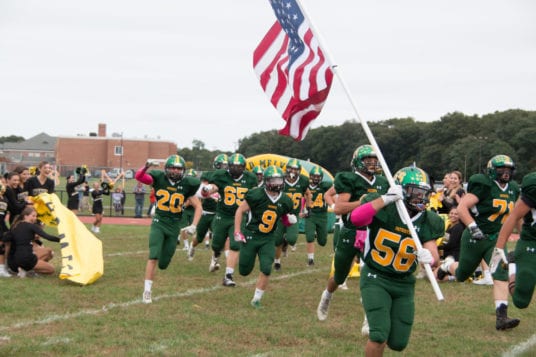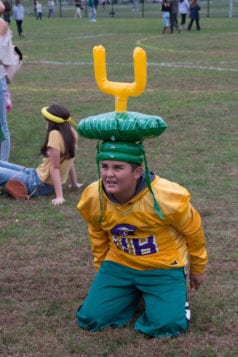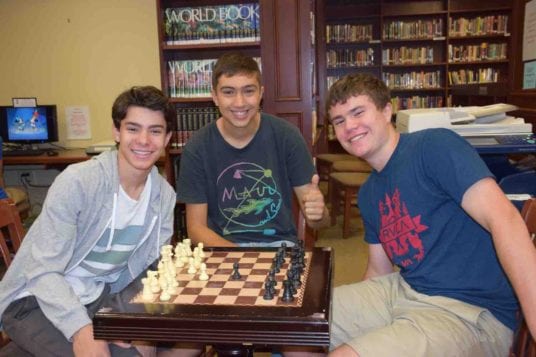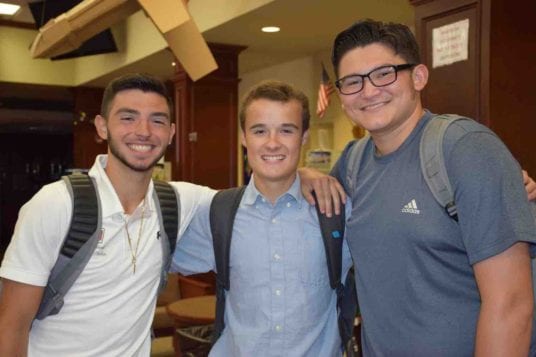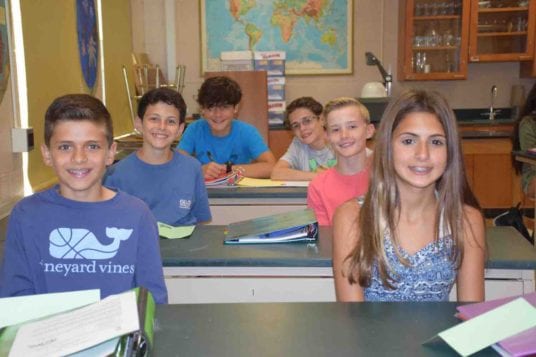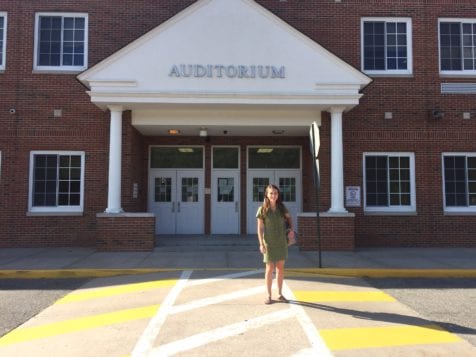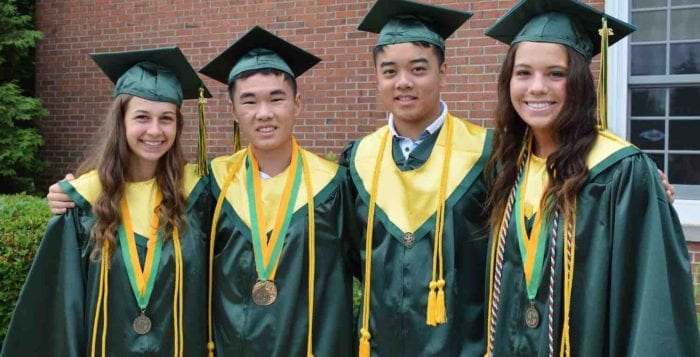By Andrea Paldy
Amid the end-of-year festivities, Three Village school officials did not miss a beat when it came to attending to district business. At the last school board meeting before graduation, administrators outlined coming changes to the elementary report card and added rigor to the high school curriculum.
As part of the board’s policy to review programs every five years, a committee of teachers and administrators from elementary and secondary levels reviewed and revised the elementary school report card. Kathryn White, principal at W.S. Mount Elementary School, said that since the last review, there have been changes in educational philosophy and the way teachers assess students and learning behaviors. She said there has also been the introduction of new academic standards, like Common Core State Standards and the Next Generation Learning Standards, which also needed to be considered in the two-year review process.
The committee was divided into four separate subcommittees to investigate different aspects of the report card, and the district surveyed faculty and parents on its effectiveness.
New report card notes
C — Consistently exceeds expectations
M — Most times meets expectations
S — Sometimes meets expectations
Y — Not meeting expectations
The committee developed what it believes to be a more simplified format that is easier for parents to understand. Committee member Lauren Horn, a teacher at Mount Elementary, explained that simplicity comes in the form of one achievement grade for each subject. The grades will be on a four-point scale, with a 4 demonstrating work “that exceeds grade level standards.” The scale on the sixth-grade report card will go up to 4.5 to point out “exceptional” students, she said. Effort grades for learning behaviors will represent the “growth mindset” — the concept that student behavior is not set and that students have the potential to improve with continued work, Horn said.
The committee’s report noted that rather than the familiar E (Excellent), G (Good) and I (Improvement needed), these grades will be replaced with C (Consistently exceeds expectations), M (Most times meets expectations), S (Sometimes meets expectations) and Y (Not yet meeting expectations). The comment section will feature a common language for each grade level across the district, said Dawn Alexander, district special education teacher mentor. For the 11 “behaviors related to learning” at the end of the report card, teachers will put an asterisk next to behavior they want to highlight. This is to allow parents to easily see an area in which their child is exceptional or needs more work, Alexander said.
Finally, rather than assigning a Fountas and Pinnell reading level, the report card will show reading level bands, which are a “benchmark and not a grade,” said Diedre Rubenstrunk, a lead instructional technology teacher. This means students are given a reading range based on reading ability and text difficulty.
A second committee that compared two high school diploma programs recommended that the district adopt the four-year-old Advanced Placement Capstone program. This decision came after several years of researching the International Baccalaureate program, an internationally recognized high school course of study that culminates in an International Baccalaureate diploma. The committee spent the past two years comparing the programs, said Kevin Scanlon, assistant superintendent for educational services.
Both programs are rigorous college preparatory study that encourage inquiry, research, analysis and critical thinking, and require long-form writing. To receive the IB diploma, students must take courses in six areas of study — language and literature, language acquisition, individuals and society, math, science and the arts — in addition to a year-long course called Theory of Knowledge for which students write a 1,600-word essay and give an oral presentation. They also must complete a 4,000-word extended essay as well as a community service project, encompassing creativity, activity and service.
Advanced Placement Capstone program requirements
Four AP exams
AP seminar —1,200-word written report, team project, presentation
AP research — 4,000- to 5,000-word essay, presentation, oral defence
Meanwhile, the AP Capstone diploma requires four AP exams, as well as an AP seminar and an AP research class, which are each a year long. The AP seminar includes both a team project and presentation, as well as an individual 1,200-word written report. The writing requirement for AP research is a 4,000- to 5,000-word essay, a presentation and oral defense.
In the case of both the IB extended essay and the AP Capstone essay, the papers are read and graded by readers outside of the high school. Three Village educators noted that the IB extended essay was “decentralized” and not attached to a specific class, which committee members said could be a great disadvantage. They found the AP seminar and AP research courses to offer more hands-on guidance and saw the possibility of pairing the AP research class with the district’s inSTAR science research program.
According to a survey of top colleges conducted by Ward Melville’s guidance department, colleges did not look at one program more favorably than another, said Superintendent Cheryl Pedisich. However, the process of implementing IB or AP Capstone would be drastically different.
The IB program would cost considerably more in application fees — roughly $3,000 — a $7,000 candidacy fee, as well as smaller fees for registration and subjects taught. Once the district’s candidacy was accepted after two years, the district would also have to pay an annual $11,600 fee. There are also costs to cover teacher training and ongoing professional development.
The AP Capstone program would also require teacher training, but the cumulative costs would be considerably less, according to the two program websites.
Since Three Village already offers AP classes, the committee found that adopting the AP Capstone program would be “less of a cultural shift,” and easier to implement. Ward Melville principal Alan Baum said that introducing IB would require new curriculum development and grading schemes and could cause problems for scheduling, maybe even limiting students’ class options.
The committee also pointed out that though some members visited and observed Long Island IB schools, there are not as many IB schools as AP Capstone schools. With the larger number of AP Capstone schools on the Island, Three Village could be a part of a consortium that shares resources and information.
Baum said the program could be more easily adapted to the district’s needs, while still accomplishing the same goals as an IB program. He added that this could all be achieved at a much lower and more sustainable cost to Three Village.

